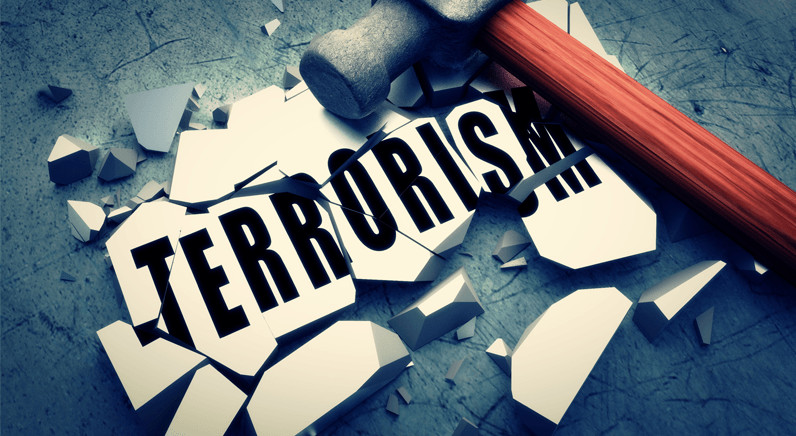The phenomenon of terrorism has permeated global consciousness, inciting a perplexing amalgam of fear, resentment, and bewilderment. At its core, this societal scourge manifests as a stark violation of Bahá’í principles, which advocate for unity, peace, and the sanctity of human life. It is imperative to explore actionable steps informed by Bahá’í teachings that can significantly contribute to mitigating terrorism. The following discourse elucidates vital approaches grounded in these teachings, urging individuals and communities alike to adopt a more holistic and compassionate perspective.
1. Embrace the Oneness of Humanity
The fundamental principle of the Bahá’í Faith is the oneness of humanity. Understanding and internalizing this principle fosters solidarity across diverse cultures and backgrounds. To counter terrorism, one must actively engage in community-building activities that promote interfaith dialogue and cultural exchange. Such engagements illuminate the shared values intrinsic to all human beings, facilitating mutual respect and diminishing the compartmentalization that fuels extremist ideologies. Establishing platforms for open discussion can eradicate misconceptions and cultivate a climate of understanding, crucial in dispelling the animosities that often underpin violent extremism.
2. Promote Education and Critical Thinking
Education serves as a formidable antidote to ignorance, a fertile breeding ground for extremist ideologies. The Bahá’í teachings underscore the significance of universal education as a means to unleash human potential and foster critical thinking. By advocating for inclusive educational initiatives, individuals can empower the younger generation with knowledge, cultivating skills that promote analytical reasoning and empathy. This transformative approach not only enlightens individuals but also enriches societies, fostering resilience against the allure of extremist narratives.
3. Encourage Spiritual Development
In the realm of Bahá’í teachings, spiritual development is paramount. Nurturing one’s spiritual well-being equips individuals with the moral fortitude to resist the pull of violence and hatred. Engaging in personal reflection, prayer, and meditation can engender a deeper connection to the concept of peace and the sanctity of life. By championing spiritual growth, communities can cultivate a culture rooted in love and understanding, whereby individuals are less prone to succumb to the desolate ideologies that pave the way for terrorism.
4. Foster Social Justice and Equity
Social justice lies at the heart of Bahá’í principles. The pervasive inequities that exist in societal structures often serve as catalysts for discontent and, consequently, violent actions. To combat terrorism, it is essential to advocate for policies that promote justice, equity, and the protection of the marginalized. Engaging in activism that champions human rights and environmental sustainability creates a sense of belonging and purpose among individuals who might otherwise feel disenfranchised. A collective commitment to social justice can thwart the inclination towards extremist behavior by addressing the root causes of discontent.
5. Engage in Grassroots Activism
Beyond theoretical applications, active participation in grassroots initiatives is critical. The Bahá’í community encourages individuals to engage at local levels to effectuate change. Initiatives can range from neighborhood watch programs that promote safety to collaborative efforts in community service aimed at uplifting the disenfranchised. Each act of kindness, no matter how insignificant it may appear, contributes to a larger tapestry of communal safety and solidarity. Through grassroots activism, individuals can manifest their commitment to peace, thereby positively influencing the societal landscape.
6. Advocate for Dialogues and Understanding
Dialogue is indispensable in dismantling the barriers erected by preconceived notions. The Bahá’í teachings extol the virtues of consultation as a means of resolving disputes and fostering understanding. By facilitating dialogues between differing factions within society, one can illuminate the underlying shared aspirations that bind humanity. Such conversations can serve as pivotal moments for reconciliation and push back against the divisive narratives that terrorism exploits. Importantly, ensuring that these dialogues occur in safe, inclusive environments is vital for their effectiveness.
7. Practice Forgiveness and Compassion
While often overlooked, forgiveness and compassion are indispensable in the quest to eliminate violence. Retributive responses to acts of terror tend to perpetuate cycles of violence and hatred. The Bahá’í teachings advocate for looking beyond the perpetrator, understanding the circumstances that lead individuals down the path of extremism. Encouraging a culture of forgiveness does not equate to absolving culpability; rather, it nourishes a fertile ground for healing. Compassionate understanding can break the chains of vengeance, providing a pathway to peace both for victims and perpetrators alike.
8. Utilize National and International Platforms for Change
Finally, the potency of national and international platforms cannot be overstated. Individual action, while essential, can be amplified through collective efforts on larger scales. Advocating for legislative measures that reflect Bahá’í principles can lend weight to the call for a more peaceful world. Whether it’s supporting international treaties aimed at disarmament or a commitment to global cooperation in addressing terrorism, individuals have a voice. Such activism can reverberate globally, prompting systemic changes that address the nexus of terrorism at its roots.
In conclusion, the Bahá’í teachings offer a comprehensive framework for addressing the multifaceted issue of terrorism. By embracing the oneness of humanity, prioritizing education, and advocating for equity, individuals become agents of change in their communities. Moreover, by instilling spiritual values, engaging in grassroots activism, and fostering understanding through dialogue, the path toward a more peaceful world becomes not only possible but inevitable. The collective endeavor to embody these principles can diminish the allure of terrorism, creating a future where peace, love, and unity triumph over discord and despair.
